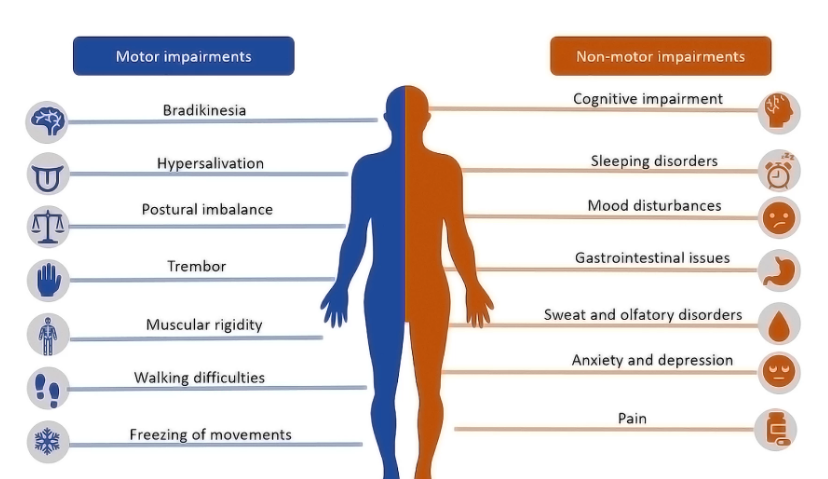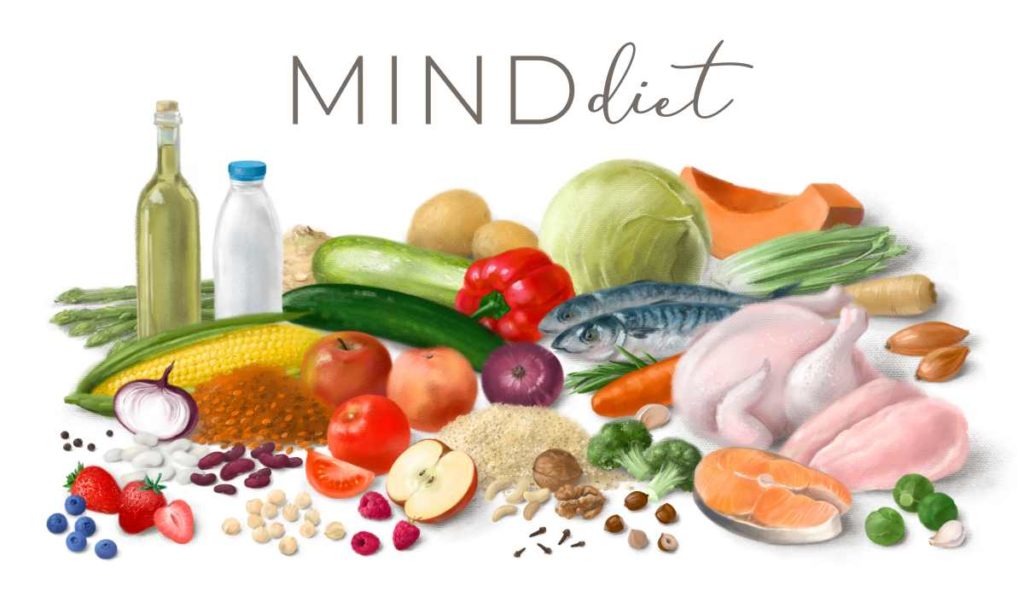Nutrition and PD
| March 10, 2022

No specific diet is recommended for individuals living with Parkinson’s, but it is important to maintain overall good health. Below are a few tips to consider but consult with your doctor or dietitian before starting any new diet. They can help design a healthy, balanced diet to fit your individual needs and improve well-being.
Maintaining Your Health
- Avoid “fad” diets. Eat food from all food groups, following guidelines of the S. Department of Agriculture MyPlate program. Eating a variety of foods will help you get the energy, protein, vitamins, minerals, and fiber you need for good health.
- Choose a diet with plenty of grain products, vegetables, and fruits, which provide vitamins, minerals, fiber, and complex carbohydrates and can help you lower your intake of fat.
- Limit sugar intake. A diet with lots of sugar can have too many calories and too few nutrients.
- Incorporate foods high in antioxidants (which are important for overall brain health) into your diet. These include brightly colored and dark fruits and vegetables.
- Choose a diet low in fat, saturated fat, and cholesterol to reduce your risk of heart attack and certain types of cancer and to help you maintain a healthy weight.
Eating to Ease PD Symptoms
- Drink enough water (six glasses a day) and eat fiber-rich foods, including brown rice, whole grains (breads with three grams or more of dietary fiber per slice), fruit and beans to ease digestive difficulties and constipation.
- Take your medications with a full glass of water. It may help your body break down the medication more efficiently.
- Limit sugar intake, alcohol, and caffeine particularly before bed, as they may interrupt sleep.
- Snack on small quantities of walnuts, cashews, and other nuts to promote brain health. Also try to incorporate berries, which contain beneficial antioxidants, and foods that may have anti-inflammatory effects in the brain, like salmon, tuna, and dark, leafy green vegetables.
Tips for Getting Started
It is important to consult with your doctor before changing your diet as some of your medications maybe required to eat in timing with your meals. It is also recommended you bring in a registered dietitian, who can help you plan menus and make shopping lists for preparing nutritious meals that you like and that account for your individual needs and the timing of your medications.
For more information download the Parkinson’s Foundation Nutrition Matters Book

















